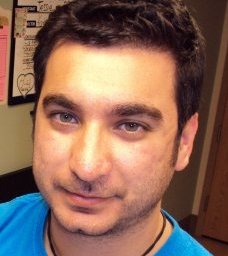New thesis: Cadasil: a pure model for studying cerebral small vessel disease
Hi Mahmod Panahi, PhD-student at the Division of Neurogeriatrics. On 14 June you will defend your thesis ”Cadasil: a pure model for studying cerebral small vessel disease”, what's the main focus of the thesis?

We worked on a disease called CADASIL, which stands for cerebral autosomal dominant arteriopathy with subcortical infarcts and leukoencephalopathy. In this disease, small blood vessels in the brain become too thick, which makes it harder for blood to flow through. These patients are prone to brain lesions and strokes.
Which are the most important results?
Vascular smooth muscles cells (VSMCs) generally regulate blood pressure and, in CADASIL, there are fewer of these cells in the blood vessels in the brain. During our investigation, we discovered that these cells renew themselves slower in CADASIL and we could potentially increase their rate of self-renewal by inhibiting a factor that is released by CADASIL VSMCs. We also discovered that sugar uptake in the brain in these patients is altered and that sugar uptake is lower in CADASIL VSMCs. We also discovered that inflammation is an active participant in this disease and that the autophagy process malfunctions in clearing up protein aggregates in this disease.
How can this new knowledge contribute to the improvement of people’s health?
Our focus has been to find immediate medication that could alleviate some of the symptoms associated with CADASIL. On the journey of trying to find existing medicines to help alleviate CADASIL symptoms, we discovered other processes that are involved in the disease progression.
What´s in the future for you? Will you keep on conducting research?
Currently, I do not have any future plans as I am focused on the defense process, but research has always been close to my heart and I will definitely continue research in some capacity.
